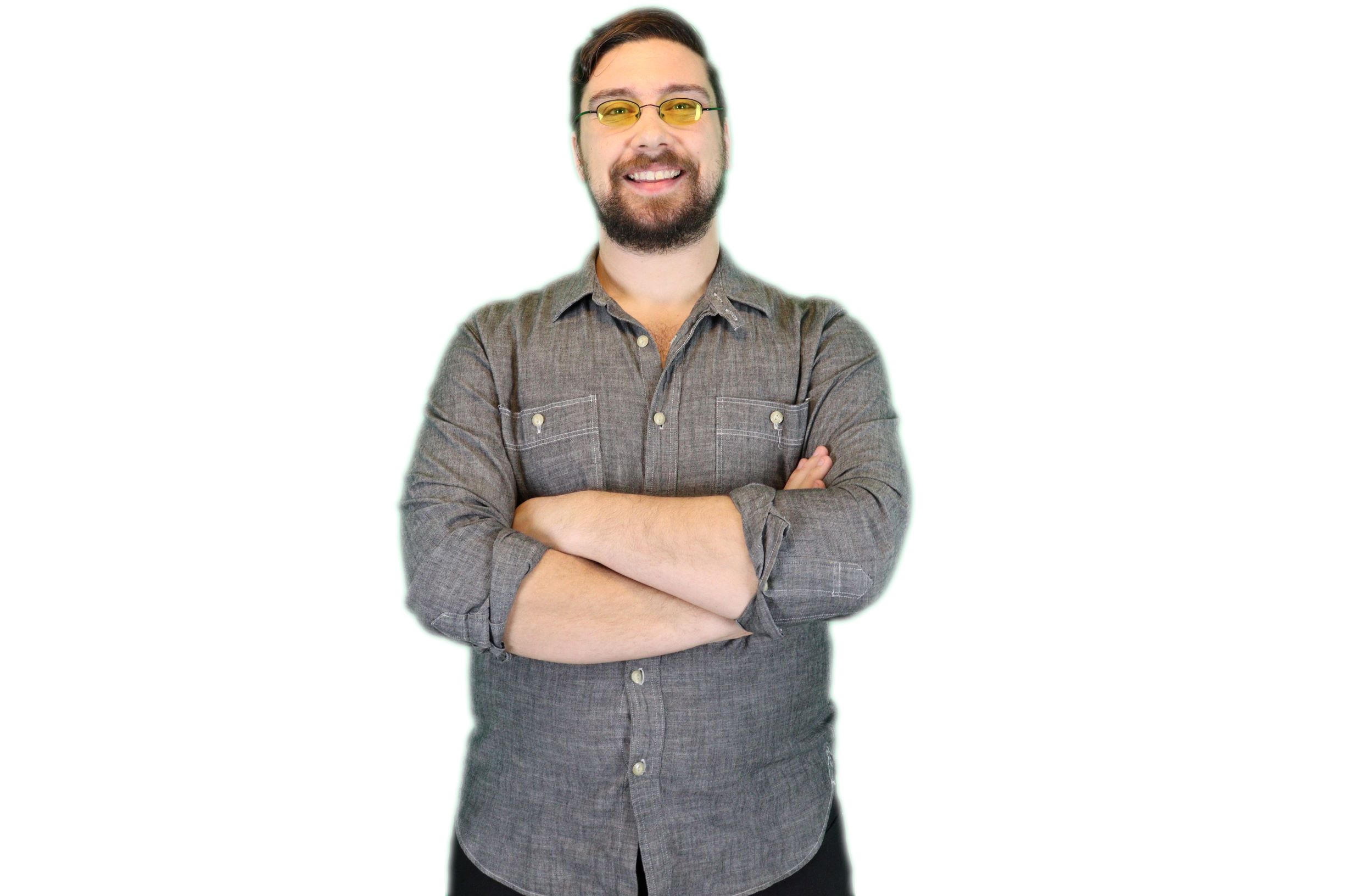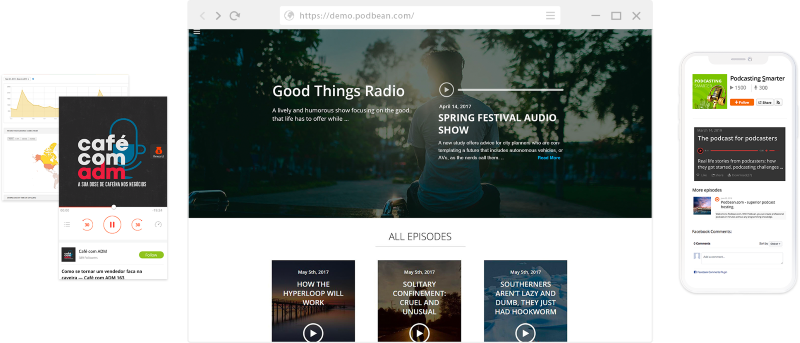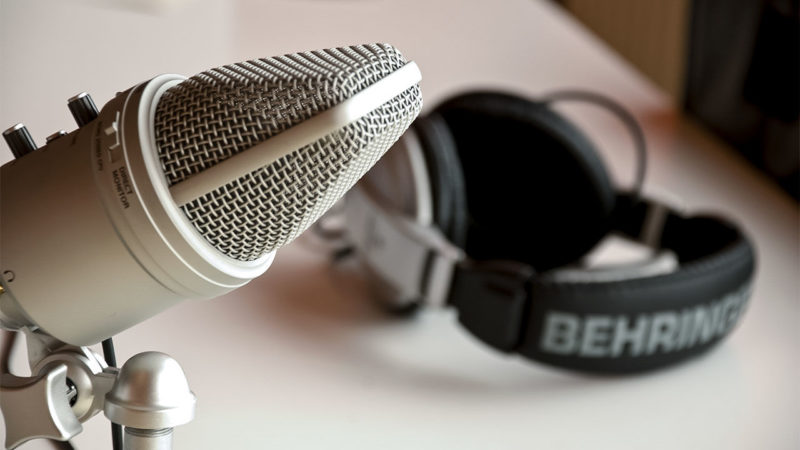12 May Talking All Things Podcasting: with Podbean
We caught up with John Kiernan, Head of Marketing at Podbean, to find out where the podcasting industry is headed. We also learned some useful tips for those who are looking to start a podcast, or to step up their podcasting game.
Let’s Dive In!
Melodie: Hey John, great to have you for a chat! Thanks for making the time. I would love to start with understanding why podcasting is growing so fast. What is the value of podcasting / being a podcaster?
John Kiernan: Hey Selin. My pleasure, it’s great to catch up! I think it’s multifaceted. Podcasting as a medium is a way for people to talk about who they are, their experiences. And it’s a way to deliver content. Whether that’s educational, entertainment-based content, or internal communication. The voice is a powerful tool. Hearing somebody, or with video podcasting seeing somebody, is an extremely engaging medium and an effective way to deliver a message.
Also, the entry to podcasting is inexpensive. A lot of people create high-quality podcasts using the technology they already have – a phone, computer or another device at their disposal. This makes podcasting not only an effective tool of conversation but also extremely cost-effective.

Absolutely. Podcasting gives creators access to a whole new audience without really costing anything, which I think is very powerful.
Exactly, and to add to that, one thing human beings want to do is to communicate. They want to hear opinions that either descend from what they believe so they can learn and grow or that they believe and want to know that they are not alone in their own thoughts. Whether that’s looking at big events that are happening, politics, sports or another topic, people want to have that conversation, and podcasting allows for that space. I don’t think that could be understated.
Very true. Speaking for myself (and probably many during Covid), podcasts help a lot with the need for connection. It’s comforting having a voice in the background.
What are your expectations for the podcasting industry in the next 5-10 years? Do you think it is going to continue to grow at this pace?
Over the last couple of years, podcasting has continued to grow in all different spaces, and I don’t see that trend stopping whatsoever, especially given how cost-effective it is. Reports say that podcasting has become one of the biggest and most engaging forms of advertising. Businesses are now looking into podcasting, saying “we can promote our products in a way that is more engaging than a lot of different mediums out there”. Therefore, in my opinion we’re going to see money funnelling into podcasting and thereby also creating more opportunities for podcasters to grow.
People are also learning about the different ways to utilise podcasting, not just for entertainment but also for educational purposes – bringing into the classroom, live streaming audio podcasts so you can create engaging moments in the moment, in the corporate world, in sports… There are just so many different ways. So, I think public-facing, entertaining content is always going to grow. In terms of fields where podcasting is not there yet or starting to develop, that’s where we’re going to see even further growth.
Podcasting is also an extremely mobile medium – most of us have iOS devices that have an app that’s already built into it. Samsung just released Samsung Free. Podbean has the Podbean App for all devices. This means someone like myself wearing AirPods can just throw on a podcast, easy as that, which makes me think the trend is just going to continue upwards.
We’re going to see money funnelling into podcasting and thereby also creating more opportunities for podcasters to grow.

Can you offer some tips for promoting podcasts?
There are a lot of different ways. One thing I always recommend is making sure you’re on as many directories as possible. A hosting platform like ours gives you the ability to create your content and upload to our site but also on Apple podcasts, Spotify and all the big directories. You never know where your audience is going to find out about your content.
Once you make sure that your titles and descriptions are as SEO-friendly as they can be, try to leverage social media, let people know that about your podcast, create spaces for them to communicate and collaborate about your content. Going back to Marketing 101, the most effective form of marketing is word-of-mouth. If you can create these spaces for people, your podcast will grow pretty quickly.
Another useful tip is to look for cross-promotional avenues, i.e. for podcasts and businesses that are within your wheelhouse. Look for other people to bring on to interview that can help cross-promote the podcast. Podcasters should be able to branch out from their podcasts to another market to take advantage of another person’s fanbase, and they can take advantage of yours too. We actually have a full webinar that we have called “How To Promote Your Podcast” where we speak about the ways that you can help grow in that market.
Knowing about advertising and how these different platforms work to help you grow, maximise your tags etc are also super beneficial.
Cross-promotional opportunities sound very useful to multiply your reach. How do you stand out from the crowd as a podcast at a time when there are just so many?
Really dive into who your niche target audience is. The most effective strategy for growing is finding what your specialty is. What are you trying to tell people? Being able to target your niche audience helps create a small market around it and then you can expand and get bigger and bigger outside of that. That’s how you stand out. That’s how you avoid being one of a million and become known for that specific topic.
Alternatively, look at your favourite podcasters, those that who inspire you and those who are successful. How are they creating their content? What draws you to them? Is it the way they speak? Is it their cadence? Is it what they speak about? Is it how they speak about it? Find what it is and replicate that in your own unique way.
Really dive into who your niche target audience is. The most effective strategy for growing is finding what your specialty is.
People say attention spans are getting shorter, and that’s why creators should create “snackable content”. What’s your take on this?
I don’t think that attention spans have necessarily shortened so to speak. Instead, I think there’s a lot of great content out there, both from a production and a creativity standpoint. This leads to people listening to the section they care about (and creating the rest of the story in their heads), then jumping on to the next thing. They feel an obligation to pull in all the great content, and the only way to do that is by cutting off different parts of other things. That’s why the cross-promotional avenues I mentioned before are so important.
What are your key tips for those who are thinking of starting a podcast but aren’t sure where to begin?
Personally, I think just jump in with both feet. A lot of the biggest podcasts in the world are really done with minimal equipment; so don’t break the bank on it. It’s really more about what message you’re putting out. A lot of successful podcasters do great work with simply an iPhone and a pair of AirPods that come right with the device. Or use Zoom to record, take the audio and upload that.
Just start and know that you can develop over time. You’ll get better the more you do – you’ll hear things back and say “I won’t do that again” or hear things that you like and say, “okay I want to do that more”. You’ll listen back and say, “Well, what if we did this instead?”
For people who are a bit more fearful, I would say record a couple of test episodes to see how your flow is. Once you feel comfortable, you can start putting it out to the public. You may also find that you want to upload your first test episode, and there’s nothing wrong with that. You can really do a lot by simply just starting and just finding what works for you and what doesn’t.

Do you think it’s better to have authentic, improvised content, or more professional, curated content?
I think it varies. If we think of some of the biggest podcasts out there, they are edited to remove some uhms, breaths etc but the content is still the content. Those conversational podcasts tend to have an air of honesty to them. That said there’s plenty of content that’s overly produced and still sounds great, so I think there’s value in both. Listen back to your content critically and think “is this the message I want people to be knowing about me?” – that should lead you in the right direction.
You’re a musician & composer yourself. What would you say about the value of having theme music, intros and outros in podcasts?

John Kiernan – Podbean
I think it’s really important for a multitude of reasons. First and foremost: branding. The initial branding through music is pivotal for people to know who you are, even if they are subscribers. You’re getting your brand in front of the eyes and ears of that audience. For people who might not know you up front or are recommended through cross-promotional channels, the first audio clip is a great way to bring more people in and have them understand what you’re going to be about.
One facet that people in the podcast industry often misunderstand is “fair use”, meaning that you want to make sure that any music you use on a podcast is legally licensed for use in your podcast. There is a lot of legality and different licensing that go into that, and there’s a lot of misconception about the idea of fair use. We as a podcast industry have seen a deeper crackdown, rightfully so, on people using copyrighted material. This is where I think Melodie does a really great job of providing royalty-free music that you can use for whatever wicked ends you need to, and I think that’s extremely important.
In terms of transition music between sections, that’s very important too because, while there are definitely benefits to just a long string podcast, having that small little clip of transition will let people know the new section is coming up. It breaks up the monotony, even if it’s a 2-second transition. It will really help to make your podcast feel less like an audio burden and more like something people want to continue listening to. You can use the same music in the intro and outro, and you can cut small snippets from those and make them sound like they fit as transitions.
Fantastic closing point! Well, you would be happy to know that each of our tracks at Melodie features a range of pre-compiled stems/alternate versions, which are super useful for those transitions.
That’s amazing, massive time saver for podcasters and content creators!


